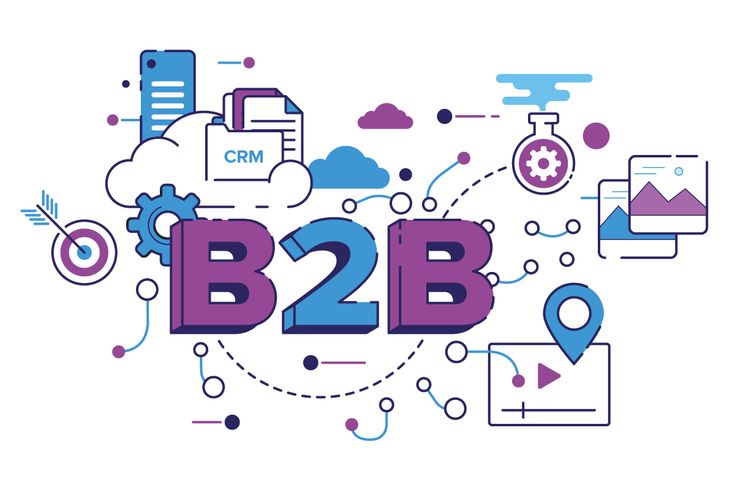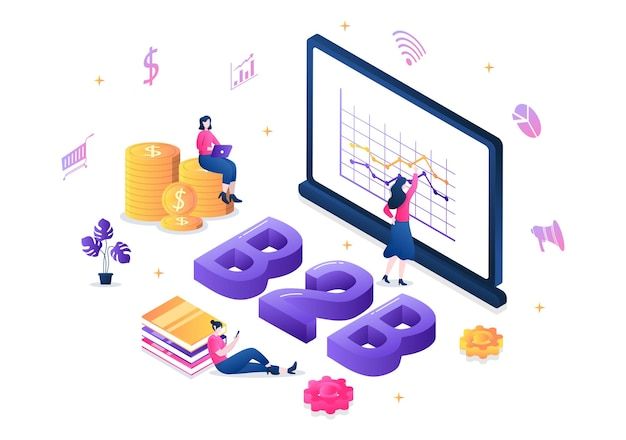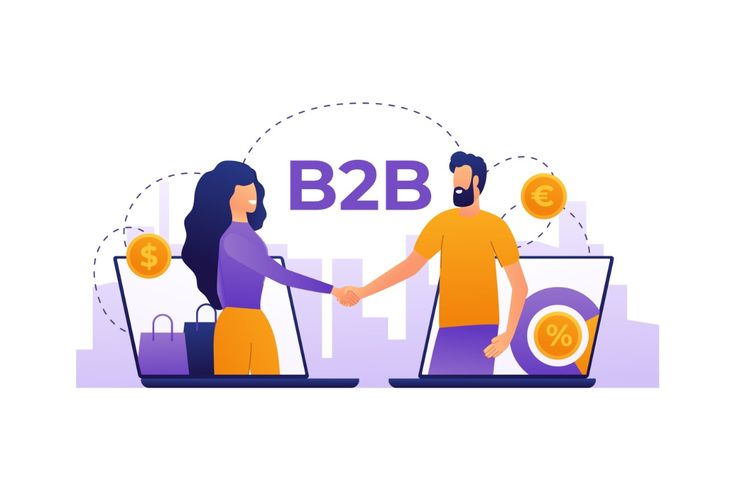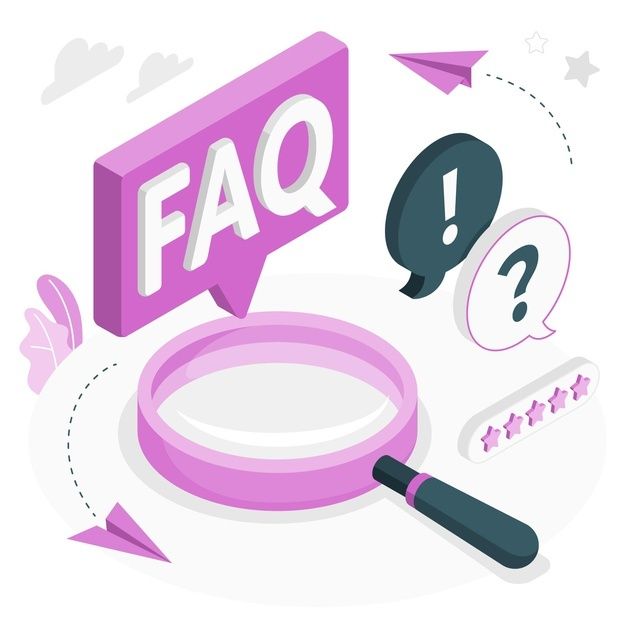
In today’s competitive business landscape, a digital marketing plan for B2B growth is no longer a luxury; it’s a necessity. For B2B companies, the ability to connect with decision-makers, generate qualified leads, and nurture long-term relationships hinges on a well-thought-out digital strategy. But how do you create a scalable plan that evolves with your business needs and market dynamics?
This comprehensive guide will walk you through the essential steps of building a digital marketing plan for B2B growth. We’ll cover everything from goal setting and audience targeting to choosing the right channels, creating compelling content, and measuring success.
Table of Contents
- Why a Digital Marketing Plan is Crucial for B2B Growth
- Steps to Build a Scalable Digital Marketing Plan for B2B Growth
- Step 1: Define Your Objectives
- Step 2: Understand Your Target Audience
- Step 3: Conduct a Competitive Analysis
- Step 4: Choose the Right Marketing Channels
- Step 5: Develop a Content Strategy
- Step 6: Leverage Marketing Automation Tools
- Step 7: Track, Measure, and Optimize Performance
- Common Challenges and How to Overcome Them
- FAQs on Building a Digital Marketing Plan for B2B Growth
Why a Digital Marketing Plan is Critical for B2B Growth?
A solid digital marketing plan for B2B growth serves as a framework for maintaining consistency and scalability in your marketing activities. Unlike B2C transactions, which are frequently rapid and emotion-driven, B2B sales cycles are lengthier and more complex. Prior to making a purchase, decision-makers require detailed information, trust, and several touchpoints.
Benefits of Scalable Digital Marketing Plans
Increased Lead Generation: By targeting your approach, you can attract more qualified leads.
Enhanced Customer Retention: Use personalised tactics to build strong relationships with customers.
Adaptability: Quickly adjust your plan in reaction to market changes.
Cost Effectiveness: Maximise your spending by focussing on channels that produce outcomes.

How to Create a Scalable Digital Marketing Plan for B2B Growth?
Steps to Build a Scalable Digital Marketing Plan for B2B Growth
Step 1: Define Your Objectives
Your goals are the foundation of your digital marketing plan. Start by identifying what you want to achieve, such as:
- Increasing brand awareness
- Generating qualified leads
- Enhancing customer engagement
- Driving revenue growth
Use the SMART framework to set Specific, Measurable, Achievable, Relevant, and Time-bound objectives. For example: “Increase website traffic by 30% in the next six months.”
Step 2: Understand Your Target Audience
In B2B marketing, knowing your audience is paramount. Use buyer personas to identify:
- Demographics: Industry, company size, job titles
- Pain Points: Challenges they face in their roles
- Decision-Making Process: Who influences the purchase decisions?
Conduct surveys, interviews, and leverage tools like Google Analytics to gather data.
Step 3: Conduct a Competitive Analysis
Analyze your competitors to understand their strengths and weaknesses. This can provide insights into industry trends and help you identify gaps in the market. Key factors to examine include:
- Content Strategy: What type of content are they producing?
- SEO Performance: Which keywords are driving their traffic?
- Social Media Presence: Which platforms are they active on?
Tools like SEMrush and Ahrefs can streamline this process.
Step 4: Choose the Right Marketing Channels
Not all channels are suitable for B2B marketing. Focus on platforms that align with your audience’s behavior:
- LinkedIn: Ideal for professional networking and lead generation.
- Email Marketing: Perfect for nurturing relationships and driving conversions.
- Search Engine Optimization (SEO): Enhances visibility for high-intent keywords.
- Webinars and Podcasts: Build authority and engage deeply with prospects.
Step 5: Develop a Content Strategy
Content is king in B2B marketing. To build a scalable plan, focus on creating evergreen and high-quality content that addresses your audience’s needs. Examples include:
- Blog posts (like this one on a digital marketing plan for B2B growth)
- Whitepapers and eBooks
- Case studies and testimonials
- Video tutorials and webinars
Repurpose content across multiple platforms to maximize its reach.
Step 6: Leverage Marketing Automation Tools
Automation tools save time and ensure consistency. Use platforms like HubSpot or Marketo to:
- Schedule social media posts
- Automate email campaigns
- Score and nurture leads
- Analyze campaign performance
Step 7: Track, Measure, and Optimize Performance
A scalable plan requires constant monitoring and optimization. Track key metrics such as:
- Website traffic
- Conversion rates
- Cost per lead (CPL)
- Return on investment (ROI)
Use analytics tools like Google Analytics, Tableau, or Power BI to gain actionable insights

Common Challenges and How to Overcome Them
1. Generating High-Quality Leads
Solution: Focus on account-based marketing (ABM) to target high-value accounts.
2. Aligning Sales and Marketing Teams
Solution: Foster collaboration through regular meetings and shared KPIs.
3. Adapting to Market Changes
Solution: Stay updated with industry trends and invest in continuous learning for your team.
4. Budget Constraints
Solution: Prioritize high-ROI activities and optimize campaigns through A/B testing.
Conclusion
Creating a digital marketing plan for B2B growth is an ongoing process that requires strategic thinking, data-driven insights, and adaptability. By following the steps outlined in this guide, you can build a scalable plan that not only drives immediate results but also sets the stage for long-term growth.
Invest in the right tools, focus on your audience’s needs, and never stop optimizing. With persistence and a clear strategy, your B2B business can thrive in the digital age.

FAQs on Building a Digital Marketing Plan for B2B Growth
1. What makes a digital marketing plan for B2B growth different from B2C?
B2B marketing focuses on long-term relationships, high-value transactions, and targeted communication. B2C, on the other hand, often relies on emotional appeal and faster sales cycles.
2. Which platforms are best for B2B digital marketing?
LinkedIn, email marketing, and search engines are most effective for B2B businesses. However, the choice of platforms depends on your audience’s behavior.
3. How do I measure the success of my digital marketing plan for B2B growth?
Track metrics like lead generation, conversion rates, and ROI. Use tools like Google Analytics, SEMrush, and CRM platforms to monitor performance.
4. How can I make my digital marketing plan scalable?
Focus on automation, invest in evergreen content, and continuously analyze and optimize your strategies.
5. How much should I budget for a digital marketing plan for B2B growth?
Your budget will depend on factors like industry, company size, and goals. Start small, analyze ROI, and scale up as needed.
